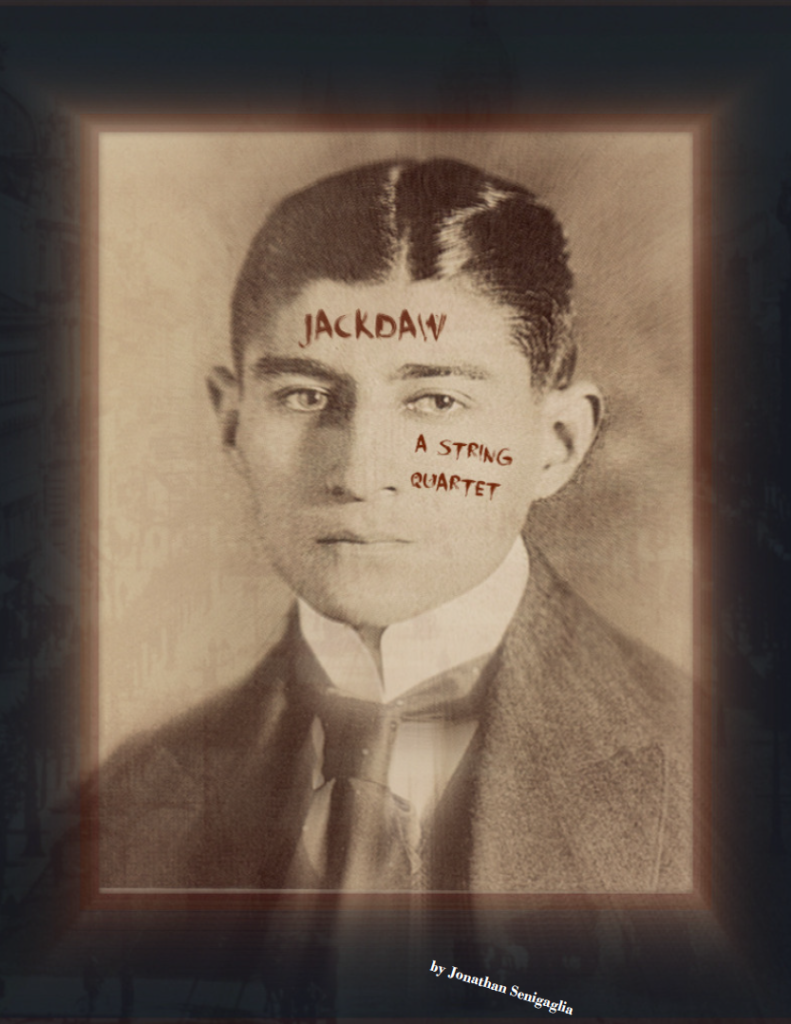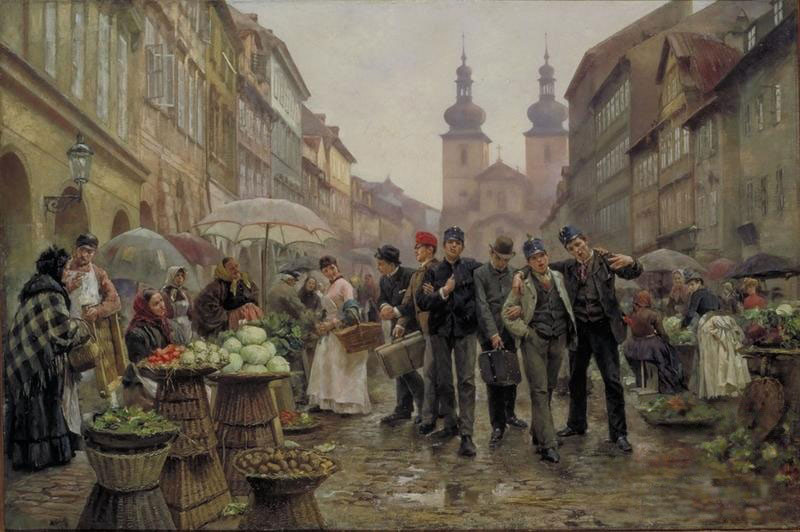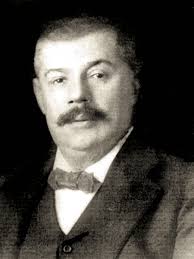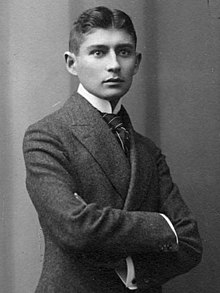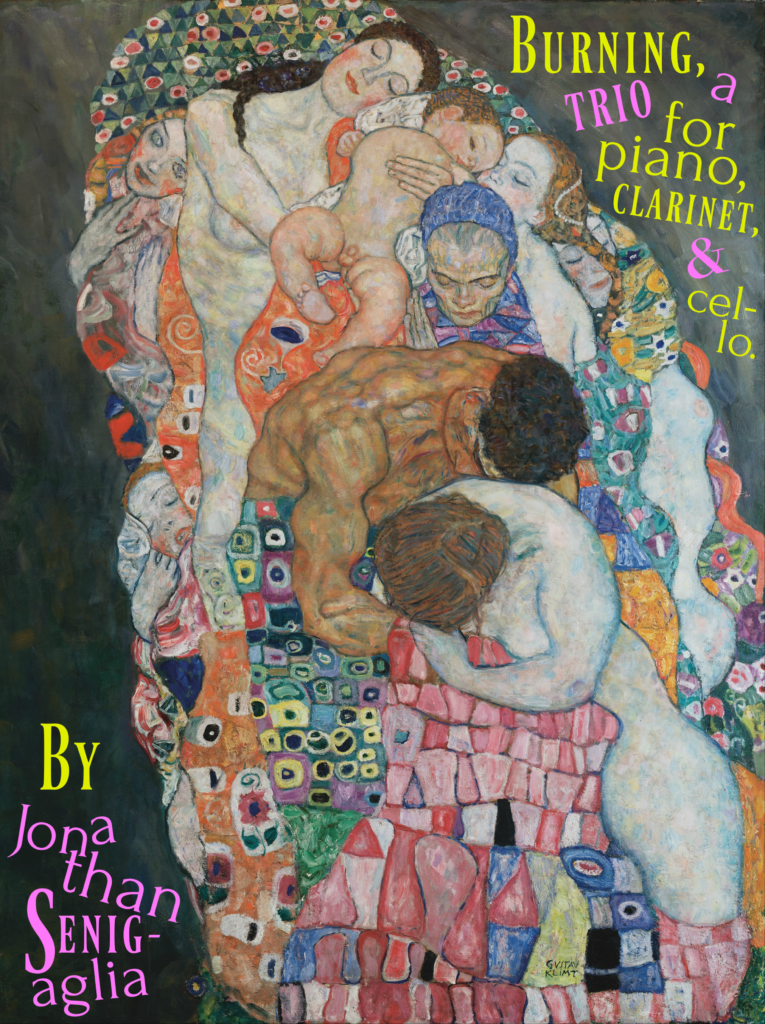Recently I’ve been writing this music for piano, clarinet, and cello, with the intention of entering it into the composition contest held by the NYC Contemporary Music Symposium. Today I officially entered the competition. If I win, this music will be performed at a concert in New York, and I’ll get a professional recording too.
The first draft of this music came about in 2007, after reading the dark and mysterious novel The Meaning of Night by Michael Cox, which filled my head with strange colors. I sketched out the basic shape of the piece, but then discarded it as I got swept up in writing Jackdaw.
I revisited the music after returning from my honeymoon in 2012, and built it into a more sturdy shape. Because of the energy and emotion I was feeling during that incredible time in my life – when I had just returned from Europe newly married, when I was so obsessed with creating art and so hungry for life, and in many ways mixed up – this music (which was a by-product of that creative energy and emotion) will forever remind me of that time. To be specific, this music reminds me of the city of Prague, where I drank absinthe and played piano at a pub, and felt myself sink into the Great Human Experience. Read more about that here.
Even after all that, I still couldn’t be bothered to actually finish the music, so again it was discarded and left for dead. Then nine years later, in April 2021, when I decided to enter the NYC Symposium contest, I chose the Bowery Trio as the ensemble I would write for, and resurrected this music that has always meant so much to me. First I changed the instrumentation. The original instrumentation was piano, oboe, and bassoon, which certainly gave it a funky flavor (as I mentioned earlier, I was trying to express some strange color)! But once I switched over to the much more standard piano, clarinet, and cello, the music took on that rich and loving sound that it always wanted to have. While the original instrumentation was unique, it didn’t fit with the sections of the music that were more tender, the love themes. The new instrumentation brought those themes to life, and welcomed more diversity of color into the music as a whole. Oboe and bassoon can become a bit monochromatic after a time, but cello can sing forever.
This music bends genre a bit. It’s classical for sure, but also infused with blues. I also wanted certain rhythms to sound metal, but not metal in the sense of Metallica meets the symphony. I wanted the metal-esque pieces to be fully baked, or interwoven, into the framework and form of the classical music (as opposed to simply taking a metal song and performing it with a classical ensemble). Therefore this music doesn’t really sound like authentic metal in any sense, but certain sections were inspired by the genre, and these moments make an impact on the ear as they pass.
This music has followed me through multiple stages in my life. First as a student striving to expand my creative palate, trying to understand the world but falling far short; then as a young husband, traveling in a haze from country to country, stateless but full of love and optimism, bursting with creative energy; and lastly as I find myself today: a father, trying desperately to prioritize art creation during a very busy year of a very busy life, still nurturing that spark. This music somehow reflects all of that. Or at least that’s what it means to me.
I set myself a goal in January to enter two music competitions this year. One down, one to go.

